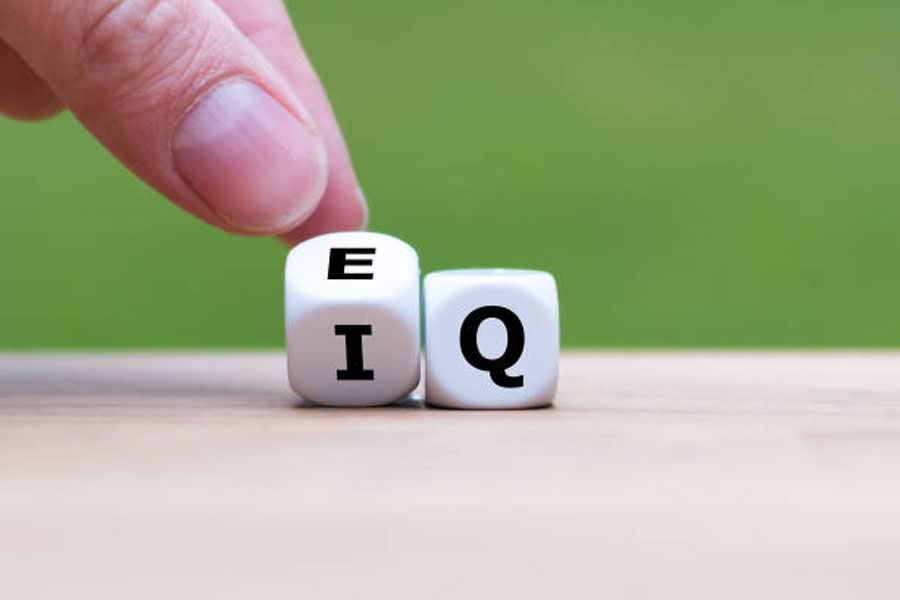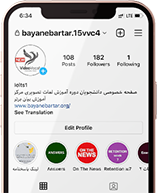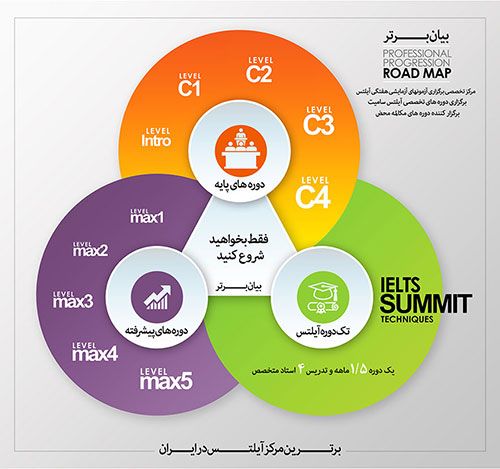Advancced Level
EQ and IQ are terms that are often confused and mistakenly used with each other. However, there are some very important distinctions between EQ and IQ. IQ is known as “Intelligence Quotient” and it’s a measure of a person’s relative intelligence. Emotional Quotient, also known as EQ, is the ability to identify and manage your emotions and the emotions of others.
Intelligence Quotient
Merriam-Webster defines IQ as “a number used to express the apparent relative intelligence of a person. Determined by either the ratio of the mental age (as reported on a standardized test) to the chronological age multiplied by 100 - or a score determined by one's performance on a standardized intelligence test relative to the average performance of others of the same age.”
A person scoring below 70 is typically considered to have an intellectual disability, while those scoring over 145 are considered genius or near-genius. While it’s technically possible to score at or above 180, two-thirds of the population have an IQ somewhere between 85-115. IQ can change over time depending on a person’s propensity to learn new concepts.
Emotional Quotient
EQ is defined as an individual’s ability to sense, understand and effectively apply the power and acumen of emotions to facilitate higher levels of collaboration and productivity. EQ is often referred to as emotional intelligence as the terms are interchangeable .
Research shows that successful leaders and superior performers have well developed emotional intelligence skills. This makes it possible for them to work well with a wide variety of people and to respond effectively to the rapidly changing conditions in the business world. In fact, a person’s emotional intelligence may be a better predictor of performance success than intelligence. Like IQ, a person can focus on specific areas of EQ and work to improve their scores.
Three Components of Emotional of Emotional Quotient
When considering emotional intelligence, we look both internally and externally. EQ considers how we think about ourselves and how we think about and act toward others. The stronger a person is in each of these areas, the better chances he or she possesses to achieving greatness in most situations.
The three internal hallmarks of emotional intelligence pertinent to self are:
- Self-awareness is the ability to recognize and understand your moods, emotions and drives, as well as their effect on others.
- Self-regulation is the ability to control or redirect disruptive impulses and moods and the propensity to suspend judgement and think before acting. In practice, it is your ability to influence your emotional clarity.
- Motivation is a passion to work for reasons that go beyond the external drive for knowledge, utility, surroundings, others, power or methodology and are based on an internal drive or propensity to pursue goals with energy and persistence.
The good news is that, just like your IQ, your EQ is not set in stone. While you may have areas in which you struggle today, with conscious effort you can improve those scores. Doing so will help you succeed in all situations, especially in business or social interactions.
Emotional intelligence is part knowledge, part restraint and part wisdom. Just as we spend years going to school to build our IQ, we need to spend time each and every day working on our EQ. Having a high IQ, without an equally high EQ, only gets us so far. But the combination of the two working in tandem can create limitless opportunities for someone proficient in both areas.
اگه از صفر میخوای شروع کنی، اینجا رو کلیک کن و از توی دورهها، سطح IntroA رو ثبت نام کن. ده ماه دیگه تمومش میکنی.ثبت نام
اما اگه قبلا زبان خوندی، از این لینک استفاده کن و یه بیست دقیقه برای تعیین سطح وقت بذار. تعیین سطحمون هم هیجان انگیزه. تعیین سطح
اگر هم اطلاعات بیشتر در مورد کلاسها و نحوه تدریس میخواد برو توی صفحه زیر، همه اطلاعاتش هست. صفحه WIKI
Elementary Level
EQ and IQ are expressions that are often confused and people use them in a wrong way. However, there are some very important differences between EQ and IQ. IQ is known as ‘Intelligence Quotient’ and it’s a scale of a person’s relative intelligence. Emotional Quotient, also known as EQ, is the ability to recognize and manage your emotions and the emotions of others.
Intelligence Quotient
Merriam Webster explains IQ as a number used to express the obvious relative intelligence of a person. Calculated by the ratio of their mental age (as reported on a standardized test) to how old a person really is multiplied by 100 – or a score judged by the performance of a person on a standardized test and compared to the average performance of other people at the same age.
If a person’s score is less than 70, that person will typically be known as intellectually disable. People whose score is over 145 are considered as genius or near-genius. While it’s technically possible to score at 180 or more, two-thirds of the population have an IQ between 85-115. IQ can change because of a person’s tendency to learn new concepts during time.
Emotional Quotient
EQ is explained as the ability of a person to feel, understand and to think quickly and make good judgments of emotions to ease cooperation and productivity. EQ is often referred to as emotional intelligence as the definitions are interchangeable .
Research shows that successful leaders and superior performers have high levels of emotional intelligence skills. This skill makes working with many different people and responding to quick changes in business world, possible. A person’s emotional intelligence may be a better factor of performance success than intelligence. Like IQ, a person can focus on specific areas of EQ and try to improve their scores.
Three components of emotional quotient
When emotional intelligence is discussed, we look at both inside and outside. EQ is how we think about ourselves and others and how we act toward them. People achieve better results in most situations when they are stronger in each of these areas.
The three signs of emotional intelligence relevant to self are:
- Self- awareness is the ability to recognize and understand your moods, emotions and desire to achieve goals, as well as their effects on others.
- Self-regulation is the ability to control or redirect problematic impulses and moods and tendency to make judgement and think before acting. In practice, it’s your ability to influence your emotions clearly.
- Motivation is a strong will to work for reasons that are more than desire for knowledge, utility, surrounding, others, power or methodology and are based on an internal will or tendency to achieve goals with energy in a continuous way.
The good news is that, just like your IQ, your EQ can change during time. While you may have some areas you work extremely hard on, with conscious effort you can improve your scores. If you do this, it will help you to become successful in all situations, especially in business or social interactions.
Emotional intelligence is part knowledge, part self-control and part wisdom. Just as we spend years going to school to build our IQ, we need to spend time everyday to work on our EQ. having a high IQ, without the same EQ is not enough. But both IQ and EQ working at the same time can create limitless chances for someone who is good at both areas.
ترجمه فارسی
هوش هیجانی و بهره هوشی : تفاوت ها
هوش هیجانی (EQ) و بهره هوشی(IQ) دو مفهومی هستن که گاهی اشتباهی گرفته و استفاده میشن در حالیکه تفاوت های بسیار مهمی بین این دو هست.
IQ که به عنوان بهره یا ضریب هوشی شناخته میشه معیاری برای اندازه گیری هوش نسبی فرد هست. EQ یا همون بهره هیجانی ، قابلیت شناسایی و کنترل احساسات خود و دیگران است.
بهره هوشی
ماریام وبستر IQ رو به عنوان عددی که هوش نسبی مشخص افراد رو اندازه گیری میکنه، معرفی میکنه که یا با اختلاف سن ذهنی(که در تست های استاندارد شده گزارش شدن) و سن واقعی افراد در 100 ضرب میشه یا با مقایسه عملکرد یه شخص با دیگران توی یک آزمون استاندارد با همون سن و سال سنجیده میشه.
شخصی که نمره زیر 70 بگیره ناتوان ذهنی محسوب میشه و کسایی که بالای 145 نمره بگیرن به عنوان نابغه یا شبه نابغه شناخته میشن. اگرچه از لحاظ فنی گرفتن نمره بالای 180 امکان پذیره، دو سوم مردم یه نمره ای بین 85-115 میگیرن. این هوش با گذشت زمان بر اساس انگیزه و اشتیاق افراد برای یادگیری مفاهیم جدید میتونه تغییر کنه.
هوش هیجانی
تعریف EQ به عموان قابلیت احساس کردن، درک کردن، قضاوت و فکر کردن درست به احساسات در لحظه هست که هم کاری کردن با دیگران و بازدهی رو آسون میکنه. EQ اغلب به عنوان هوش هیجانی شناخته میشه با اینکه تعاریف قابل تغییر هستن.
تحقیقات نشون میدن رهبران موفق و اجرا کننده های رده بالا مهارت هوش هیجانی بسیار بالایی دارن. این قابلیت کار کردن با نعداد زیادی از آدمای متفاوت و کنار اومدن با تغییرات در دنیای کار رو ممکن میکنه براشون. درواقع میشه گفت هوش هیجانی یک شخص معیار بهتری برای پیش بینی موفقیتش نسبت به بهره هوشیش هست. مثل IQ آدما میتونن رو زمینه های مشخصی از EQ تمرکز کنن و نمره شون رو بهتر کنن.
5 ماده ی تشکیل دهنده هوش هیجانی
وقتی راجع به هوش هیجانی صحبت میکنیم به هر دو عامل درونی و بیرونی باید نگاه کنیم.EQ درواقع فکری که ما نسبت به خودمون و همچنین دیگران داریم و جوری که باهاشون رفتار میکنیم. هرچی شخص تو این زمینه ها قوی تر باشه شانس بیشتری برای رسیدن به موفقیت های بزرگ داره.
3 نشانه هوش هیجانی نسبی افراد عبارتند از:
- خودآگاهی قابلیت تشخیص و درک حالات، احساسات و محرک ها و تاثیرشون روی دیگران هست
- خودکنترلی قابلیت کنترل یا تغییر جهت تنش های مشکا زا و چالش برانگیز و حالات و قابلیت قضاوت نکردن و فکر کردن قبل از انجام عملی هست. به عبارت بهتر، این قابلیت شما در تاثیر گذاری روی احساساتتون به طور واضح هست.
- اشتیاق میل باطنی ای که بیشتر از محرک های بیرونی باعث میشه برید سراغ یادگیری دانش، تجهیزات، محیط پیرامون، بقیه آدما، قدرت و متدلوژی که اصل و اساسش اشتیاق درونی برای رسیدن به اهداف با پایداری و انرژی هست.
خبر خوب اینه که درست مثل IQ، EQ هم ثابت و موندگار نیست و میتونه با گذشت زمان تغییر کنه. با اینکه شاید الان زمینه هایی داشته باشین که باید روشون به شدت کار بشه، با تلاش آگاهانه میتونین این امتیازات رو بهتر کنین. انجام این کار بهتون کمک میکنه که در هر شرایطی موفق باشید به خصوص در کسب و کار و برخورد های اجتماعی.
هوش هیجانی بخشیش دانشه، بخشیش خود کنترلی و بخشیش ذکاوته. همونطور که سال های زیادی رو در مدرسه برای بالا بردن IQ میگذرونیم، لازمه هرروز روز هوش هیجانی مون کار کنیم. داشت بهره هوشی بالا بدون هوش هیجانی فقط شما رو از هدف دور میکنه. اما ترکیبی از هردوی اینا و بکارگیری جفتشون برای کسی که قابلیت بالایی داره میتونه فرصت های نا محدودی خلق کنه








